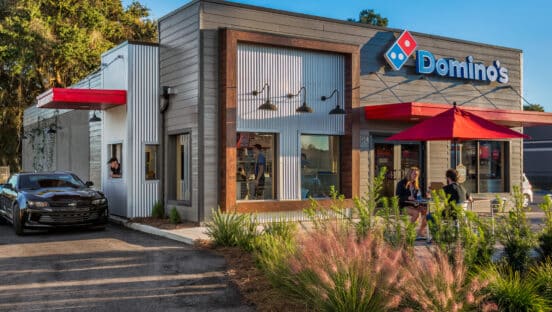The pandemic wasn’t picky when it came to disruption. That included restaurant leadership, from the one-unit owner-operator to the most diverse C-suites at mega brands. Yet you could argue no title turned the playbook quicker than CFOs. The role suddenly had to grapple with trillion-dollar relief packages, disaster programs, tax relief, and on the COVID list rolled. More granular, guarding cash fast became a maze of operational tactics and survival strategies. And that hasn’t changed.
While this world remains dynamic, so does the ever-evolving face of the CFO position. QSR caught up with David Perla, co-COO at Burford Capital, a firm with a $4.8 billion portfolio, to discuss how corporate CFOs in the restaurant world today can protect against risk, increase liquidity and contain costs on guaranteed items by unlocking the asset value of meritorious litigation and arbitration claims, among many other threads.
First, share some background with us on your company, your role, and Burford Capital’s work in the restaurant industry.
I am co-chief operating officer of Burford Capital, with overall responsibility for Burford’s global marketing, origination and underwriting activities. Burford is the leading finance firm focused on law and the only to be listed on both the NYSE and LSE. We are the largest global provider of legal finance in the world, with $4.8 billion in our portfolio.
Burford routinely works with Fortune 500 companies and the AmLaw 100 firms that represent them. In fact, 94 AmLaw 100 and 90 Global 100 law firms have brought us opportunities to fund the firms or their clients. Corporate clients—from Fortune 500 companies to startups—accounted for 58 percent of Burford’s new commitments as of June 30. We have had over 10,000 requests for funding over our history and work with companies across industries and sectors, and the food and beverage industry is one of continued focus for us.
Before joining Burford, I served as president of Bloomberg Law, co-founded and was co-CEO of Pangea3, the top-ranked global legal process outsourcing provider, and was VP of Business & Legal Affairs for Monster.com. These experiences at corporations enabled me to experience firsthand the “invisible” asset of legal claims and how best to monetize them, as I plan to discuss with you today.
So, let’s shift to helping corporate CFOs in the sector. What are some of the challenges they’re currently facing at this juncture in the COVID recovery?
It is no secret that many restaurants globally are facing unprecedented cash constraints and business pressures in addition to significant distribution disruptions due to the logistical bottlenecks caused by supply chain issues. And these matters only add to the challenge of ongoing disputes, such as those caused by certain suppliers’ anticompetitive behavior.
Independent research commissioned by Burford in 2021 suggests that CFOs are dealing with unnecessary yet solvable challenges relating to their legal spend. For example, we found that over half (53 percent) of food and beverage CFOs say that their companies have extensive affirmative recovery programs—that is, programs to return funds to the business through litigation. But unless companies are financing these programs, they are incurring potentially tens, even hundreds, of millions of dollars of spend and experiencing months and years of delayed payment of damages suffered by them. As we found in our research, CFOs may be unnecessarily risking their own budget by overlooking duration risk (the length of time it takes to file, settle, litigate, appeal and get paid) by spending out of pocket. Even companies with robust recovery programs that can afford litigation may find that capital could generate a better return if invested elsewhere in the business.
Moreover, there are other consequences to overlooking the opportunity to finance these programs: Companies with inadequate affirmative recovery programs are 27 percent more likely to say they are leaving money on the table in neglecting to enforce judgments worth many millions to the business.
On the P&L front, how can CFOs reduce operating expenses and mitigate risk? Where do you start?
CFOs are faced with many risks in their business dealings, including uncertainty around litigation outcomes and litigation recoveries, as well as duration risk. In legal finance, capital is provided on a non-recourse basis to pay the fees and expenses of one or more affirmative litigations: the provider assumes the downside risk of loss and gets is money back and its return only in the event of a positive result, which assures the client both budget certainty and risk protection. Financing can be used to cover the costs of a single legal claim or across a pool of matters, enabling companies to reduce expense and thereby preserve capital or to use that capital to offset other legal department costs—including defense litigation. Done right, CFOs can use legal finance as a tool to create predictability around legal spend writ large.
To illustrate how this works in practice: An industrial engineering company was involved in a high-value, multi-year dispute over a supplier’s alleged professional malpractice. The dispute was damaging, leading to lost business, significant reputational damage and reduced cash flow and liquidity. Following an unsuccessful mediation attempt, the company initiated an arbitration. The company stood to recover damages valued in the low nine figures but needed to preserve its budget for use in day-to-day operations rather than paying legal fees and expenses out of pocket. The company needed capital as well as expertise, and Burford provided both, including almost $6 million to cover case-related fees and expenses. The $6 million was non-recourse, not a loan: Burford’s investment did not add to the company’s debt load and would be paid back only if and when the company achieved a successful outcome in the dispute. The company would keep any excess funds recovered after paying Burford’s return. If the case was unsuccessful, the company would owe nothing to Burford or its lawyers—eliminating the cost and risk of the litigation.
Burford’s $6 million of non-recourse capital guaranteed that the company could assert its right for relief under the contract with its suppliers, without having to redirect precious operating cash to its outside lawyers. Our client was thus able to pursue a critical recovery at no cost and could keep its focus on continuing to rebuild its business while it waited for its matter to resolve.
What about the balance sheet and using legal asset to increase liquidity? And how has that changed now versus pre-COVID days?
We at Burford recognize that the food and beverage industry is typically characterized by slim profit margins and high overheads, and that COVID further exacerbated cash flow and expense management concerns. And of course, the food sector has been involved in significant disputes in recent years, including high-profile allegations of price-fixing among suppliers of beef, turkey, chicken and pork, as well as business interruption insurance claims, supply chain contract disputes and food safety litigation.
To illustrate how this works: A household name Fortune 500 company had a large meritorious claim in a high visibility antitrust matter that it was pursuing on an opt-out basis. Simultaneously, the company was looking to cut costs due to revenue generation pressures following a brief decline in profits. In 2020, Burford provided $29 million in upfront capital by monetizing a significant portion of the expected proceeds from the company’s opt-out claim. This capital allowed the client to generate significant liquidity and to continue pursuing the litigation without incurring additional downside risk and enabled the company to realize the value of otherwise illiquid legal assets without having to wait for the case to resolve. The monetization “locked in” a guaranteed minimum return regardless of the outcome or timing of the litigation since legal finance isn’t a loan and isn’t debt. The immediate cash injection was then used for strategic business purposes on the company’s schedule.
As I just explained, monetization can be used to accelerate the otherwise captive value of pending claims, judgments and awards and reduce risk and enhance liquidity, as we help companies fund recovery programs without risking their own capital. CFOs often find that capital can generate a better return when legal finance frees up legal assets and capital is invested elsewhere in the business.
Many food and beverage companies have high-value legal claims and awards that are financeable assets, and some companies may not even be aware of the value of their claims—and that’s where Burford comes in, both as a trusted advisor and investor. Financing those claims enables companies to efficiently access millions in non-recourse capital that can be reinvested in the business. Moreover, legal finance offers a liquidity solution without requiring companies to take on additional debt.
Looking ahead, what do you anticipate will be the next big challenge for CFOs?
The primary challenge remains the same: companies must frequently balance the viability of bringing worthwhile litigation and arbitration claims against the realities of constrained budgets and the inherent uncertainty tied to litigation timelines, opponent tactics, case outcomes and collection risk. As a result, companies are often deterred from pursuing meritorious legal action due to cost and thus leave money on the table. This is not new, but in a post-COVID world it may become an even greater challenge for CFOs.
Corporations in general are also facing increasing pressure to meet ESG goals. Of note, we recently announced the second phase of The Equity Project, our initiative designed to increase diversity in the leadership ranks of the business of law, where corporations and GCs play an important role. As part of this initiative, we earmarked $100 million in additional funds (from our first commitment) to help legal departments committed to diversity use litigation finance to further incentivize their firms to appoint diverse teams to represent them. This in turn furthers ESG goals while also boosting liquidity and reducing operating expenses.
Even with all the uncertainty and disruption of the current market, what are some ways CFOs can prepare?
CFOs can and should seek creative solutions to increase liquidity and reduce expenses, which includes using legal finance to unlock the latent asset value of litigation and arbitration claims. Research shows that 50 percent of financial officers in the food and beverage industry agree that pending claims are financeable assets because they represent future value—so there is a clear openness to new tools and new ideas among finance leaders in the industry.
Talk about weathering the storm. Do you think more bankruptcies, mergers, or sales could be coming for the industry?
I think we have all found that the impacts of COVID on the economy and the supply chain are lasting longer than any of us initially anticipated and that it is hard to predict exactly when all of this will normalize. I can’t prognosticate but do want to stress the significance of available solutions to help companies weather the storm.
Burford was founded in 2009, right after the onset of the global financial crisis. We helped companies weather an economic storm then and will continue to do so today, creating certainty and predictability in uncertain times.
In terms of the restaurant CFO, how will COVID change their job for the long run? In other terms, what does the modern CFO look like on the other side?
That’s a great question. As we have seen with the uncertainty of the past eighteen months, the modern CFO must be nimble and creative to survive—and certainly to thrive.
COVID has stressed the importance of adaptability and creativity in the C-suite, especially among CFOs, and this is something we understand at Burford. Legal matters are complicated, and we work with CFOs, GCs and their legal teams as a strategic partner, using creative cash flow solutions to meet our clients’ business needs.
Burford is here to help the modern CFO reduce expenses and enhance liquidity for competitive innovation. Industry players gain a competitive edge by partnering with us to help leverage their legal assets, and in turn, protect earnings and increase working capital.












